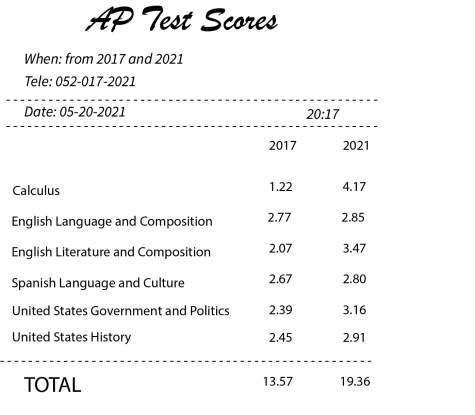Purpose of AP Classes
Photo by: Francisco Castaneda
AP Spanish teacher Angela Pallarés talks to her 7th hour students about peer reviewing their essays.
November 4, 2021
PHS staff provides information and benefits for students enrolled in AP classes.
According to counselor, Jessica Stegman, AP or advanced placement, are standardized exams that measure if a student has mastered the curriculum taught in each AP class.
Not all AP credits are transferable to colleges.
“Most universities accept AP credit. Out of the top 100 schools in the nation, all but three take AP credit,” 4 year AP teacher, Emily Rountree, said. “Generally, 3 is a qualifying score for credit for many schools.”
According to Rountree, if you want to go to a private university, you might ne

ed a higher qualifying score; for example, Harvard requires a 5 on the AP Language and Composition test in order to receive any credit.
According to Stegman, whether or not a college will take AP credits is never in the high school’s control.
“Colleges have the right to accept or deny the AP exam score, even if a student passes the exam,” Stegman said. “This policy is completely determined by individual colleges.”
PHS only offers a limited amount of advanced placement classes.
“There are thirty eight total exams offered by College Board and PHS offers six,” Stegman said.
According to Rountree, College Board is a nonprofit organization, and one of their programs is the AP program.
AP classes offer more than just educational opportunities.
“AP provides a more rigorous curriculum than non-AP classes,” Stegman said. “Due to the rigor of the curriculum, students become familiar with college-level work.”
Aside from earning college credit, advanced placement classes have the potential to benefit one’s GPA.
“At the high school level, any student who successfully completes an AP class also earns weighted credit on their transcript,” Stegman said.
According to Stegman, if you’re a student who wants a challenge in school or potentially wants to earn college credit, then an AP course is for you. If you’re wanting a course that offers a weighted GPA, then an AP course may be something to consider.



























